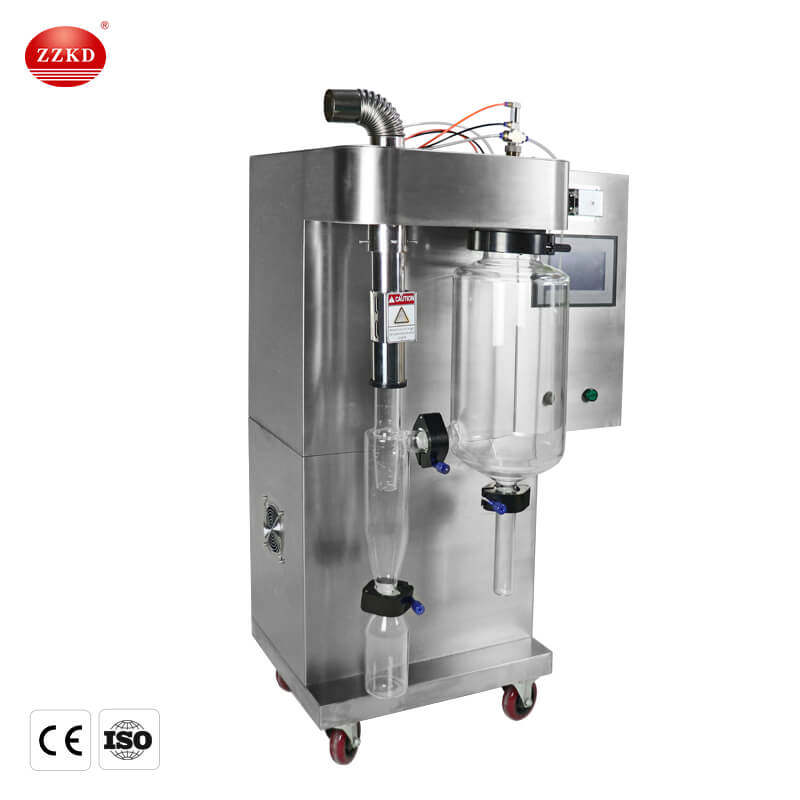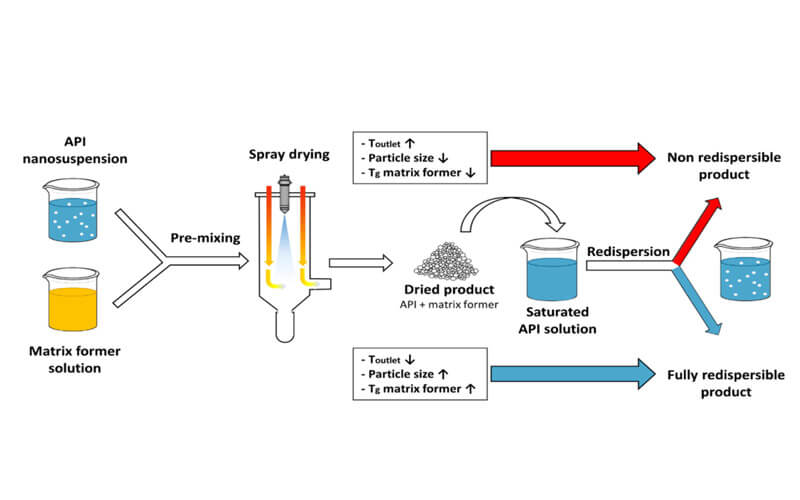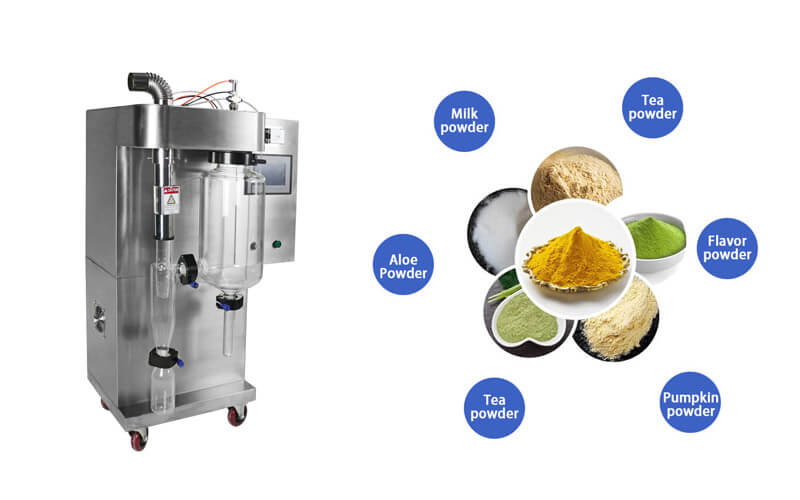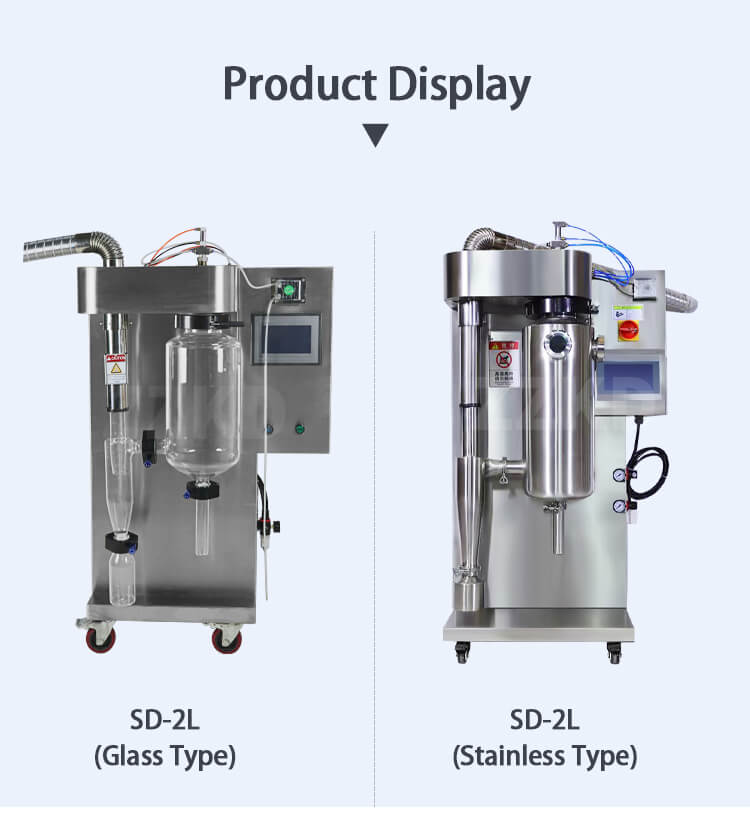Is Spray Drying Cost Effective?
In the realm of industrial processing, particularly within the chemical, pharmaceutical, and food industries, spray drying stands out as a pivotal technique. This process involves transforming liquid feed into a fine powder through rapid drying with a hot gas, commonly air. But the question that often arises is: Is spray drying cost-effective? Let’s delve deeper into this topic to uncover the economic viability of spray drying and why it continues to be a preferred method for many industries.

Understanding Spray Drying
Spray drying is a method of producing a dry powder from a liquid or slurry by rapidly drying it with a hot gas. This process is widely used in various industries for its ability to create a fine, uniform, and free-flowing powder, which is easier to handle, store, and transport. The process involves three main stages:
1. Atomization: The liquid feed is dispersed into fine droplets.
2. Drying: The droplets are rapidly dried by hot gas.
3. Collection: The dried particles are collected as a powder.
The end product's characteristics—such as particle size, moisture content, bulk density, and flow properties—can be precisely controlled by adjusting the process parameters, making spray drying a versatile and reliable technique.

Is Spray Drying Suitable for Small Businesses?
Absolutely! While the initial investment might seem daunting, small businesses can benefit from the scalability of spray drying. Many manufacturers offer modular systems that allow businesses to start small and expand as needed. Additionally, contract manufacturing services can provide access to spray drying without the need for significant upfront investment, making it a viable option for small-scale operations.
Cost Factors in Spray Drying
To assess the cost-effectiveness of spray drying, we need to consider several factors:
Initial Investment
The initial investment in spray drying equipment can be significant. High-quality spray dryers are sophisticated machines that require considerable capital. However, the cost should be weighed against the machine’s durability, efficiency, and the quality of the output it produces. Investing in a high-end spray dryer can lead to long-term savings through reduced maintenance costs and increased operational efficiency.
Operational Costs
Operational costs are a crucial aspect of the cost-effectiveness of spray drying. These include energy consumption, labor, maintenance, and raw materials. Spray drying is an energy-intensive process due to the high temperatures required for rapid drying. However, modern advancements in technology have led to more energy-efficient spray dryers that minimize operational costs. Additionally, automation in spray drying systems reduces labor costs and enhances productivity.
Yield and Quality
One of the key advantages of spray drying is the high yield and consistent quality of the end product. High yield translates to less waste and more product output from the same amount of raw material, making the process cost-effective. Consistent quality ensures that the product meets industry standards, reducing the risk of rework or rejection.
Scalability
Spray drying is highly scalable, making it suitable for both small-scale and large-scale production. This scalability means that businesses can start with a smaller investment and gradually increase capacity as demand grows. This flexibility contributes to the overall cost-effectiveness of the process.

How Does Spray Drying Compare to Other Drying Methods?
When compared to other drying methods like freeze-drying or drum drying, spray drying often comes out ahead in terms of cost-effectiveness. Freeze-drying, while excellent for preserving sensitive materials, is significantly more expensive and energy-intensive. Drum drying, on the other hand, might be cheaper but can result in lower product quality. Spray drying strikes a balance by offering high-quality output at a reasonable cost, making it a preferred choice for many industries.
Advantages of Spray Drying
Versatility
Spray drying can be used with a wide range of materials, including heat-sensitive substances, making it an ideal choice for pharmaceuticals, food, and chemicals. This versatility allows companies to produce various products using the same equipment, enhancing the return on investment.
Improved Product Stability
The spray drying process enhances the stability and shelf life of products by creating a dry powder that is less prone to microbial growth and chemical degradation. This improved stability reduces storage and transportation costs and ensures that the product remains effective and safe for a longer period.
Enhanced Solubility and Bioavailability
In the pharmaceutical industry, spray drying is often used to improve the solubility and bioavailability of drugs. By creating fine, uniform particles, the process ensures better dissolution and absorption in the body, leading to more effective treatments. This enhancement can justify the initial and operational costs by adding significant value to the end product.
What About Environmental Impact?
With increasing focus on sustainability, the environmental impact of industrial processes is a critical consideration. Spray drying, particularly with advancements in energy-efficient technologies, has a relatively low environmental footprint. Modern spray dryers are designed to maximize energy efficiency and minimize waste, aligning with the global push towards greener manufacturing practices.

Is spray drying cost-effective? The answer, when considering the entire spectrum of factors, is a resounding yes. The initial investment in high-quality equipment, coupled with operational efficiency, high yield, consistent quality, and versatility, makes spray drying a valuable process for many industries. By optimizing energy use and scaling production according to demand, businesses can achieve significant cost savings and operational benefits.
Moreover, the ability to produce stable, high-quality products that meet industry standards further enhances the cost-effectiveness of spray drying. As technology continues to evolve, making spray drying more energy-efficient and environmentally friendly, its appeal and practicality are set to grow even further.
Spray drying is not only cost-effective but also a strategic investment for businesses looking to optimize production, enhance product quality, and remain competitive in their respective markets. So, if you're considering adopting or expanding your spray drying capabilities, rest assured that the benefits will far outweigh the costs.


